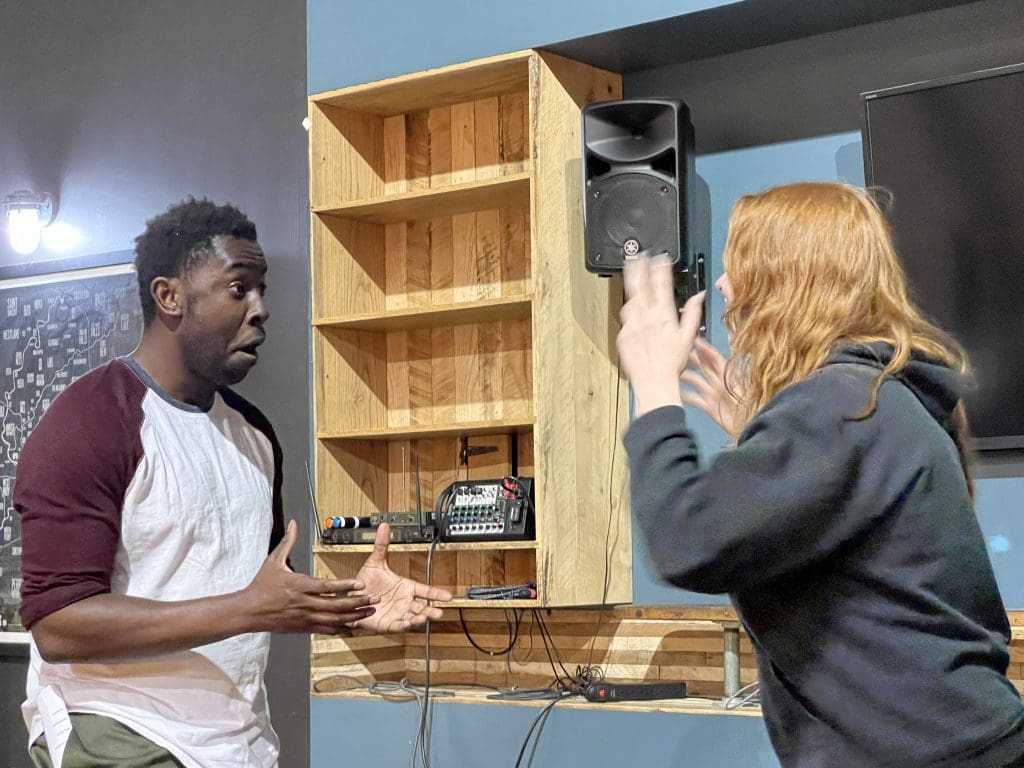


For those unfamiliar with the term “Magical Negroes,” the title of Southbank’s next play Marie Antoinette and the Magical Negroes might be puzzling. “Magical Negroes,” popularized in 2001 by director Spike Lee, is a term describing the film trope of using Black people as loving, inspirational, or wise characters that aid and support white protagonists — almost, or in fact, magically. Some examples include Mammy (Hattie McDaniel) in Gone with the Wind, Morpheus (Laurence Fishburne) in The Matrix, and Bagger (Will Smith) in The Legend of Bagger Vance. The characters usually have no history or life of their own, but show up in the story for the sole purpose of supporting a white protagonist. The Black characters used this way in film usually represent one or more Black stereotypes: Mammy (caregiver), Jim Crow (trickster portrayed in minstrel shows), Savage (untamed animal), Sambo (simple minded, docile), and Sapphire (bossy, headstrong woman).

In Marie Antoinette and the Magical Negroes, each of the Black actors is part of Marie Antoinette’s narrative, playing their stereotypical roles that Hollywood has traditionally assigned them. However, author Terry Guest also provides the Black characters with an interiority and history all their own, thereby transforming the Magical Negroes into people who represent lived experience in Black America. Calling the Black characters “the Tribe,” Guest gives several Tribe members at least one monologue in which part of the Black experience is on display, including the Haitian rebellion, protesting in Ferguson, and the murder of George Floyd. Shifting between the modern world and the French Revolution, Guest shows that privileging white experience in entertainment is just another act of colonization and using Black characters as helpers to white protagonists becomes tokenism instead of real inclusion.

In Marie Antoinette and the Magical Negroes, Guest flips the script on this trope. Each actor represents several real and/or representative characters from history. When the Black characters represent white historical figures, Guest often transforms those characters into the white version of a magical support figure to Black activists. People such as John F. Kennedy, Lyndon B. Johnson, and others appear out of context to parrot their historical words in a way that mimics the Magical Negro trope — a white character becomes the helper character without a history of their own. The difference between the white historical figures in Guest’s play and the Magical Negro trope is that the white characters are often more harmful than helpful to their Black counterparts, as is the case with Napoleon, who reinstituted slavery in France after becoming emperor — or they are killed before their aid can be fully manifested, as is the case with JFK.
Marie Antoinette and the Magical Negroes has so much to say about rebellion, resistance, rage, and revolution, but on another level, it also asks us to interrogate our actions in diversity, equity, and inclusion. Through a structural approach to flipping the Hollywood narrative, Terry Guest puts the experiences of Black people at the center of history and illuminates the troubling reliance of whites on Blacks in film, theatre, and life in general.

For more information on the term “Magical Negroes,” Black stereotypes, and more, check out the following articles:
Marie Antoinette and the Magical Negroes runs from June 17-26 at Fonseca Theatre. Tickets are available here!
Share :